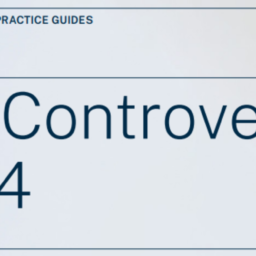ПОСИЛАННЯ НА ВЕРСІЮ ІНФОРМАЦІЇ УКРАЇНСЬКОЮ МОВОЮ ЗНАХОДИТЬСЯ ПІД ТЕКСТОМ
Stay in Poland of people who have fled war in Ukraine into the territory of the Republic of Poland triggers some questions as regards the place of their tax residence (the unlimited tax obligation) and related consequences for Polish entrepreneurs who would employ them.
In accordance with the provisions of the Polish PIT Act, persons who in the territory of the Republic of Poland have their center of personal or economic interests (the center of vital interests) or who stay in the territory of the Republic of Poland longer than 183 days in a calendar year, they become Polish tax residents.
How to determine whether a person from Ukraine is a Polish tax resident?
Criteria for the Polish tax resident status
Center of interests
A person who has come from Ukraine may become a Polish tax resident as long as it can be confirmed that he/she has their center of personal or economic interests in Poland.
Due to the absence of precise statutory criteria, the assessment whether a given person has their center of vital interests in Poland requires a case-by-case analysis of circumstances that accompany such person’s stay in the territory of the Republic of Poland. If the person from Ukraine has left there his/her family (e.g., her husband), if she still has there, e.g., an apartment and a bank account, and she thinks of her stay in Poland as temporary – she intends to return to Ukraine or to go to another country – it will be rather impossible to state in such a case that she has the center of vital interests in the territory of the Republic of Poland. If however such a person is going to live in Poland together with her whole closest family, e.g., in an apartment made available to them, she starts organizing her stay in Poland, and members of her family take a job here or start going to school, some serious arguments will arise in favor of the view that such a center of vital interests does come into being in Poland.
Stay over 183 days
In turn, the prerequisite concerning the number of days of stay in Poland does not cast any doubt. In case of the lapse of 183 days of stay in Poland, a person from Ukraine becomes a Polish tax resident, which means that he/she will be subject to PIT on all of his/her incomes derived, and not only the income derived in Poland.
In practice, disputes occur whether upon the lapse of the 183-day period such a person becomes a Polish tax resident for the future only, for a period of consecutive months or years of stay in Poland or retroactively, from the beginning of his/her stay in Poland, also before the lapse of 183 days. In the latter case, one would also have to pay, in addition, advances and income tax for the period of stay in Poland before the lapse of the said 183 days. We opt for the former view which is clearly supported in some rulings of tax authorities.
Tax residence-related doubts and disputes
Personal, family or property situation of Ukrainian refugees is complicated in the present circumstances. Most often, it will be very hard to determine whether, and since when, a given person has in Poland his/her center of interests and has become a Polish tax resident. It should be emphasized that a given person’s tax status will not be decided by the registration of that person to make his/her stay in Poland legal.
In case of persons who before their arrival to Poland were Ukrainian tax residents, the Poland-Ukraine Double Tax Treaty (DTT) resolves the issue of PIT taxation. Please remember that in cases to debate, if you cannot determine in which country a given person has his/her center of vital interests, or in which country he/she usually stays, then his/her place of residence for tax purposes should ultimately be deemed to be the country of which he/she is a citizen. It seems that this rule may apply to many people who in order to flee the war in Ukraine have arrived in the territory of Poland for a temporary stay.
Income from hired labor under a double tax treaty
Possible suspension of the 183-day period of stay in the territory of the Republic of Poland
In accordance with the Poland-Ukraine DTT, incomes from work performed in Poland are tax-exempt in Poland if they are not payable by a Polish employer or for his account, and an employee does not stay in Poland longer than 183 days in a given calendar year. The said period also includes ”days of physical presence” in Poland. As from the day of the lapse of that period, exemption from income tax on remunerations for work performed in Poland expires automatically as a rule. If however stay of a given person from Ukraine in Poland is forced by warfare and for this reason he/she does not return to Ukraine, we believe that it should be assumed that the running of the period (183 days) of the tax exemption is subject to suspension for the duration of warfare in Ukraine and will not run again until the end of that warfare.
Such an approach is supported by the contents of the Commentary on the OECD Model Tax Convention on income and capital. Provisions of the Poland-Ukraine DTT should be interpreted in compliance with that Commentary.
It provides that the 183-day period of the tax exemption is calculated by taking into account all days of stay in a given country (in Poland) ”excluding events that make that person’s departure impossible”. Under our rules of language and society it should be assumed that a person fleeing Ukraine into Poland as a result of war is not able to go back there for as long as the war continues. In such a case, we face the event ”that makes the person’s departure impossible”.
In such a situation, the person may not freely decide about his/her place of residence for tax purposes. It seems that such reasoning should also apply to other situations of similar type. Accordingly, incomes of an Ukrainian tax resident from work performed in Poland should not be subject to taxation in Poland for the duration of war in Ukraine even in case of his/her stay in Poland for more than 183 days if such income is payable by a foreign employer, and not the Polish one.
How to document tax residence of a person from Ukraine?
Form of tax residence certificate
In many instances, Polish tax regulations – in order for exemptions provided for therein to apply (in connection with the provisions of the DTT) – require that the foreign tax residence of the taxpayer be evidenced. For instance, pursuant to the Poland-Ukraine DTT, inter alia, incomes of contractors (service providers) may be subject to taxation in Ukraine only on condition that Polish tax remitters who pay such persons remuneration are in possession of a certificate to prove Ukrainian tax residency of those persons. Otherwise, the tax remitters – under Polish regulations – are obligated to withhold 20% tax on remunerations paid.
The applicable provisions do not specify the required form of such a certificate and they leave it to the laws of a foreign state, here: Ukraine. Having regarded the situation in Ukraine, one might find it impossible to obtain the certificate of residence from Ukrainian tax authorities. If however the Ukrainian law allowed other forms of confirmation of tax residence than those issued on official forms, e.g., a written statement or a certificate issued by pertinent diplomatic missions of Ukraine in Poland or in other countries, then Polish tax authorities should admit application of certificates of residence also in such a form. A range of legal arguments speak for it, including the circumstance that the Polish law does not stipulate any specific form nor content of such a certificate. It is worth remembering that during the state of epidemic threat and the state of epidemic announced in connection with COVID-19 and in a period of consecutive 2 months after they have been called off, it is possible to document the tax residence by a copy of the certificate (including a scan) if information arising out of the document does not cast any reasonable doubts as to compliance with the facts.
Податкове резидентство біженців з України
У зв’язку з перебуванням у Польщі осіб, які втекли від війни в Україні на територію Республіки Польща, виникають питання щодо місця їхньої податкового резидентства (підлягання необмеженому податковому зобов’язанню) та пов’язаних з цим наслідків для польських підприємців, які наймають таких осіб.
Відповідно до положень закону про податок на доходи фізичних осіб (ПДФО) Польщі особи, які мають центр особистих або економічних інтересів (центр життєвих інтересів) на території Республіки Польща або перебувають на території Республіки Польща більше 183 днів у календарному році, отримують статус податкового резидента Польщі.
Як визначити, чи є особа з України податковим резидентом Польщі?
Критерії отримання статусу податкового резидента Польщі
Центр інтересів
Особа, яка приїжджає з України, може стати податковим резидентом Польщі, якщо буде встановлено, що вона має центр особистих чи економічних інтересів у Польщі.
Через відсутність чітких законодавчих критеріїв оцінка того, чи є у даної особи центр життєвих інтересів у Польщі, потребує кожного разу аналізу обставин, які супроводжують перебування особи на території Республіки Польща. Якщо особа, яка приїхала з України, залишила свою сім’ю (наприклад, чоловіка) на території цієї країни, вона все ще має, наприклад, помешкання та рахунок у банку і розглядає своє перебування у Польщі як тимчасове – з наміром повернення в Україну чи виїзду в іншу країну – у цьому випадку, ймовірно, не можна буде стверджувати, що вона має центр життєвих інтересів на території Республіки Польща. Однак, коли така особа проживає у Польщі з усією найближчою сім’єю, наприклад, у спільному помешканні, починає організовувати перебування у Польщі, а члени її сім’ї почнуть працювати чи навчатися тут, будуть серйозні аргументи для визнання того, що такий центр їх життєвих інтересів виникає у Польщі.
Перебування понад 183 дні
З іншого боку, передумова щодо кількості днів перебування у Польщі не викликає сумнівів. Після 183 днів перебування у Польщі особа з України стає податковим резидентом Польщі, а це означає, що вона буде підлягати оподатковуванню ПДФО із загального отриманого доходу, а не лише з доходу, отриманого у Польщі.
На практиці виникають суперечки щодо того, чи стає така особа резидентом Польщі лише на майбутнє, на наступні місяці чи роки перебування у Польщі, чи також і заднім числом, від початку перебування у Польщі, ще до закінчення 183 днів. У другому випадку додаткові передоплати та податок на прибуток повинні бути сплачені за період перебування у Польщі до закінчення періоду у 183 дні. Ми підтримуємо першу з цих позицій, яка знаходить підтвердження у деяких інтерпретаціях податкових органів.
Сумніви та суперечки щодо податкового резидентства
Особистий, сімейний та майновий стан біженців з України за нинішніх обставин ускладнений. Найчастіше буде важко оцінити, чи та з якого моменту дана особа має центр інтересів у Польщі і стала податковим резидентом Польщі. Слід підкреслити, що реєстрація особи як такої, яка легально проживає у Польщі, не впливає на її податковий статус.
Щодо осіб, які були податковими резидентами України до прибуття у Польщу, польсько-українська угода про уникнення подвійного оподаткування (УПО) вирішує питання щодо оподаткування ПДФО. Слід пам’ятати, що у спірних випадках, якщо неможливо визначити, в якій країні особа має центр життєвих інтересів або в якій країні вона зазвичай перебуває, то країна, громадянином якої вона є, у кінцевому підсумку повинна вважатися її місцем проживання для цілей оподаткування. Схоже, це правило може стосуватися багатьох людей, які тимчасово приїхали до Польщі, щоб уникнути війни в Україні.
Доходи від найманої роботи у світлі угоди про уникнення подвійного оподаткування
Можливе призупинення терміну 183 днів перебування на території Республіки Польща
Згідно з польсько-українською угодою про УПО, доходи від роботи, виконаної у Польщі, звільняються від оподаткування у Польщі, якщо вони не виплачуються польським роботодавцем або на його рахунок, а працівник не перебуває у Польщі більше 183 днів протягом даного календарного року. Цей період включає «дні фізичної присутності» у Польщі. У день завершення цього терміну звільнення від податку на доходи з винагороди за виконану роботу у Польщі, як правило, автоматично закінчується. Однак, якщо перебування у Польщі даної особи з України вимушене військовими діями і через них особа не повертається в Україну, ми вважаємо, що слід погодитися з тим, що закінчення терміну (183 дні) цього звільнення від сплати податку припиняється на час військових дій в Україні і продовжиться лише після їх закінчення.
Такий підхід обґрунтовується у змісті Коментаря до Типової конвенції Організації економічного співробітництва та розвитку про податок на прибуток та майно. Положення польсько-української угоди про УПО слід тлумачити відповідно до цього коментаря.
У ньому вказано, що період звільнення від сплати податків у 183 дні розраховується з урахуванням усіх днів перебування у даній країні (тобто у Польщі), «без урахування подій, які заважають особі виїхати». Виходячи з наших мовних та соціальних правил, слід припустити, що особа, яка втікає до Польщі з території України внаслідок ведення там бойових дій, не може повернутися назад, поки ці дії здійснюються. У такій ситуації ми маємо справу з подією, яка «заважає особі виїхати».
У такій ситуації особа не може вільно приймати рішення про місце свого проживання для цілей оподаткування. Схоже, що таке міркування має стосуватися й інших подібних ситуацій. Таким чином, доходи податкового резидента України від роботи, виконаної у Польщі, не повинні підлягати оподаткуванню у Польщі під час війни в Україні, навіть у випадку його перебування на території Республіки Польща більше 183 днів, якщо дохід виплачує іноземний, а не польський роботодавець.
Як підтвердити податкове резидентство особи з України?
Форма свідоцтва про податкове резидентство
У багатьох випадках польські податкові норми для застосування передбачених у них пільг (у поєднанні з положеннями угоди про УПО) вимагають документального підтвердження іноземного податкового резидентства платника податків. Наприклад, у світлі польсько-української угоди про УПО доходи контрагентів можуть оподатковуватись лише в Україні за умови, що польські платники, які виплачують таким особам винагороду, мають свідоцтво, яке підтверджує українське податкове резидентство цих осіб. В іншому випадку, на підставі польських норм, платники зобов’язані стягувати податок із виплаченої винагороди за ставкою 20%.
Чинні нормативно-правові акти не визначають необхідну форму такого свідоцтва і залишають це за законодавством іноземної держави, у даному випадку, за законодавством України. Враховуючи ситуацію в Україні, отримати свідоцтво з місця проживання у місцевому податковому органі може бути неможливо. Однак, якщо законодавство України допускає інші форми підтвердження податкового резидентства, ніж ті, які видаються на офіційних бланках, наприклад у формі письмової декларації або у вигляді довідки, виданої відповідними українськими дипломатичними установами у Польщі або в інших країнах, податкові органи Польщі повинні дозволити використання свідоцтва про податкове резидентство також у цій формі. Це підтверджується низкою юридичних аргументів, включно з тим фактом, що польське законодавство не визначає жодної конкретної форми чи змісту такого свідоцтва. Також варто пам’ятати, що під час особливих станів – епідемічної загрози та епідемії, оголошених у зв’язку з COVID-19 та протягом наступних 2 місяців після їх скасування, можна задокументувати податкове резидентство копією свідоцтва (у т.ч. скан-копією), якщо відомості, що випливають з документа, не викликають обґрунтованих сумнівів щодо їх відповідності фактам.









